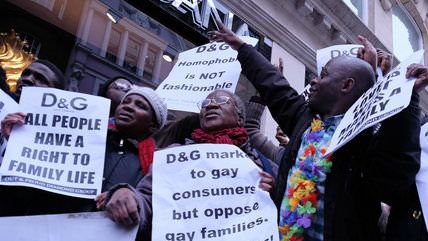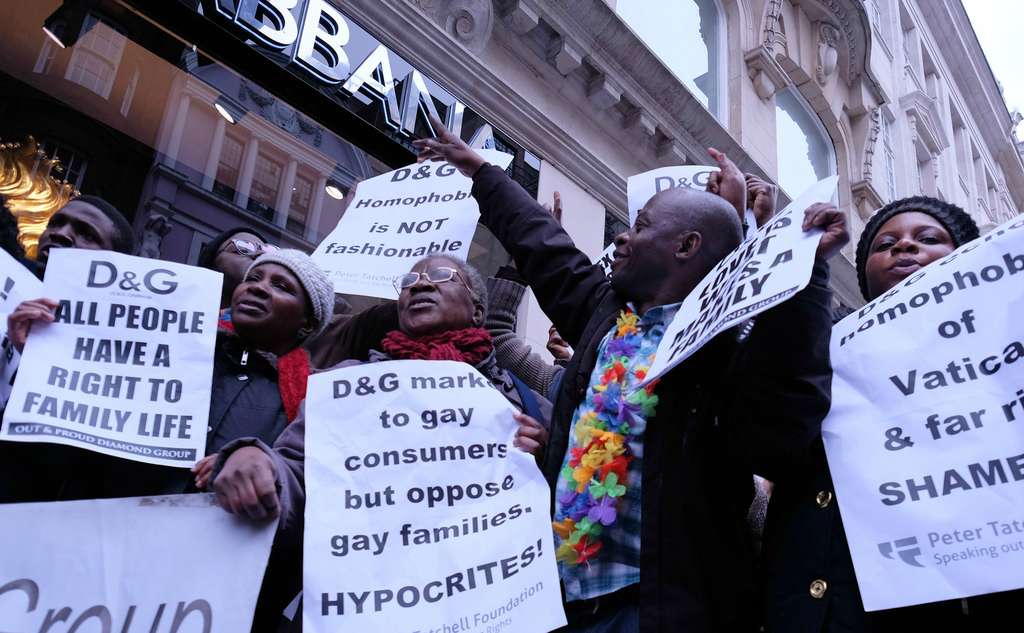Brendan O'Neill on Elton John vs. Dolce & Gabbana
Both sides claim to be pro-free speech. But those protesting D&G better exemplify the "tyranny of prevailing opinion."


Fashion designers Domenico Dolce and Stefano Gabbana, who are gay, recently told an Italian magazine that they aren't big fans of in-vitro fertilization treatment or surrogate pregnancies for gay couples. Being dad to two surrogate children, Elton John was understandably offended by the designers' dissing of gay families. So John called for a boycott of D&G, and hordes of celebs and tweeters heeded him. Before long, #boycottD&G was trending on Twitter and an angry crowd had gathered outside D&G's big store in central London to holler "Shame! Shame!" at the staff inside.
Both sides claim to be pro-free speech. In an echo of the post-Charlie Hebdo global cry, D&G's supporters have been tweeting "Je Suis D&G." But wait a second, counter the D&G boycotters—aren't we just exercising freedom of speech also, the same as D&G did? Spiked editor Brendan O'Neill doesn't think so. The boycotters' claim to be merely "exercising freedom of expression" is spectacularly unconvincing, writes O'Neill. In truth, they have brought to bear against D&G what John Stuart Mill called the "tyranny of prevailing opinion"—the informal, non-governmental policing of the parameters of acceptable thought, and punishment of anyone who steps outside those parameters.


Hide Comments (0)
Editor's Note: As of February 29, 2024, commenting privileges on reason.com posts are limited to Reason Plus subscribers. Past commenters are grandfathered in for a temporary period. Subscribe here to preserve your ability to comment. Your Reason Plus subscription also gives you an ad-free version of reason.com, along with full access to the digital edition and archives of Reason magazine. We request that comments be civil and on-topic. We do not moderate or assume any responsibility for comments, which are owned by the readers who post them. Comments do not represent the views of reason.com or Reason Foundation. We reserve the right to delete any comment and ban commenters for any reason at any time. Comments may only be edited within 5 minutes of posting. Report abuses.
Please to post comments
Mute this user?
Ban this user?
Un-ban this user?
Nuke this user?
Un-nuke this user?
Flag this comment?
Un-flag this comment?